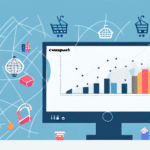Understanding the Importance of Scaling Your Ecommerce Business
Scaling your ecommerce business is crucial for long-term success and sustainability. Effective scaling allows you to increase revenue, expand your market share, and enhance your competitive edge. As your business grows, you can serve a larger audience more efficiently, improve customer satisfaction, and optimize your operations for better profitability.
One of the primary benefits of scaling is the ability to leverage economies of scale. By increasing your production volume, you can negotiate better deals with suppliers, reduce per-unit costs, and boost profit margins. This financial flexibility enables you to reinvest in your business, diversify your product offerings, and enhance the overall customer experience.
Additionally, scaling your ecommerce operations helps future-proof your business. Investing in advanced technology, automation, and streamlined processes makes your business more resilient and adaptable to market changes and consumer behavior shifts. This proactive approach ensures that you remain competitive and poised for sustained growth.
Setting Clear Goals and Evaluating Your Business Model
Establishing Growth Targets
To scale effectively, begin by defining clear and measurable growth targets that align with your long-term vision. These targets might include increasing annual revenue, expanding your customer base, or entering new markets. Setting specific goals provides a roadmap for your scaling efforts and helps maintain focus.
Breaking Down Objectives
Once you have overarching goals, break them down into smaller, actionable objectives. For example, launching a new product line, optimizing your website for better conversion rates, or targeting a specific demographic. This segmentation makes your goals more manageable and ensures that each step contributes to your overall growth strategy.
Evaluating Scalability of Your Business Model
Assess your current business model to determine its scalability. Identify any bottlenecks or inefficiencies that could hinder growth, such as outdated technology, limited product variety, or inadequate customer service infrastructure. Optimizing these areas is essential for supporting increased demand and maintaining quality.
Reference: Forbes on Evaluating Business Models for Scalability
Identifying Opportunities for Growth and Building a Strong Brand
Market Research and Audience Insights
Conduct thorough market research to understand your target audience's needs and preferences. Identify gaps in the market where you can introduce new products or services. Utilizing tools like Statista can provide valuable data to inform your decisions.
Expanding Your Online Presence
Enhance your online visibility by optimizing your website for search engines, leveraging social media platforms, and exploring new sales channels such as Amazon or Walmart. Diversifying your online presence helps attract a broader audience and mitigate the risks associated with relying on a single platform.
Building a Strong Brand Identity
A robust brand identity differentiates you from competitors and fosters customer loyalty. Define your brand values, create a consistent visual identity, and maintain a uniform brand voice across all touchpoints. A strong brand presence enhances trust and encourages repeat business.
Reference: Business News Daily on Building a Strong Brand
Developing a Scalable Marketing Strategy and Leveraging Social Media
Comprehensive Marketing Planning
Create a marketing strategy that can grow with your business. Define your target audience, map out the customer journey, and identify key engagement points. Utilize data-driven insights to allocate your marketing budget effectively and optimize campaign performance.
Embracing Diverse Marketing Channels
Incorporate a mix of marketing channels, including email marketing, content marketing, pay-per-click (PPC) advertising, and video marketing. Diversifying your marketing efforts ensures broader reach and mitigates the risk of over-reliance on a single channel.
Leveraging Social Media
Social media platforms are powerful tools for scaling your ecommerce business. Develop a content strategy that aligns with your business objectives and engages your audience. Utilize features like live streaming, stories, and influencer partnerships to boost your brand's visibility and engagement.
Reference: Harvard Business Review on Sustainable Social Media Strategies
Streamlining Operations and Investing in Technology
Optimizing Operational Efficiency
As demand increases, it's essential to streamline your operations to maintain efficiency and quality. Implement automation tools to handle repetitive tasks, improve inventory management systems, and enhance your fulfillment processes. These optimizations reduce costs and improve customer satisfaction.
Investing in Advanced Technology
Adopt scalable technology solutions that can support your growing business needs. This includes robust ecommerce platforms, customer relationship management (CRM) systems, and scalable hosting services. Investing in the right technology infrastructure ensures that your business can handle increased traffic and transactions seamlessly.
Automation for Enhanced Productivity
Utilize automation tools such as chatbots for customer service, email marketing automation for personalized communication, and inventory management software to maintain optimal stock levels. Automation frees up valuable time, allowing your team to focus on strategic initiatives.
Reference: McKinsey on Automation for Sustainable Growth
Managing Finances, Team, and Overcoming Challenges
Effective Financial Management
Maintain a keen focus on your cash flow and financial health as you scale. Monitor your revenue and expenses diligently, implement accurate forecasting, and ensure that your pricing strategies support profitability. Utilizing accounting software or consulting with financial experts can enhance your financial management practices.
Reference: Inc. on Managing Finances During Scaling
Building a Skilled Team
Recruit professionals with expertise in key areas such as digital marketing, product management, and customer service. A capable and motivated team is essential for driving your business forward. Invest in continuous training and development to ensure your team stays updated with industry trends and best practices.
Addressing Common Scaling Challenges
Scaling comes with challenges such as maintaining quality, managing increased demand, and staying ahead of competitors. Address these challenges by continuously improving your operations, embracing innovation, and seeking advice from industry experts or mentors who have successfully navigated similar growth phases.
Reference: Entrepreneur on Overcoming Scaling Challenges
Measuring Success and Tracking Progress
Defining Key Performance Indicators (KPIs)
Establish KPIs that reflect your business objectives, such as sales growth, customer acquisition cost, lifetime value of a customer, and conversion rates. These metrics provide insights into your business's performance and guide strategic decision-making.
Regular Performance Reviews
Conduct regular reviews of your KPIs to assess progress towards your goals. Analyze data to identify areas of strength and opportunities for improvement. This ongoing evaluation ensures that your scaling strategies remain effective and aligned with your business objectives.
Adapting and Refining Strategies
Based on your performance reviews, be prepared to adapt and refine your strategies. Flexibility is key to responding to market changes, customer feedback, and emerging opportunities. Continuous improvement keeps your business agile and competitive.
Reference: Forbes on Measuring Business Growth Success
Conclusion
Scaling your ecommerce business is a significant milestone that can lead to substantial growth and success. By understanding the importance of scaling, setting clear goals, identifying growth opportunities, developing a comprehensive marketing strategy, streamlining operations, and effectively managing finances and your team, you can navigate the complexities of scaling without becoming overwhelmed.
Remember to measure your progress regularly, stay adaptable, and continuously seek ways to improve. With dedication and the right strategies in place, your ecommerce business can achieve sustainable growth and become a leader in the industry.




















